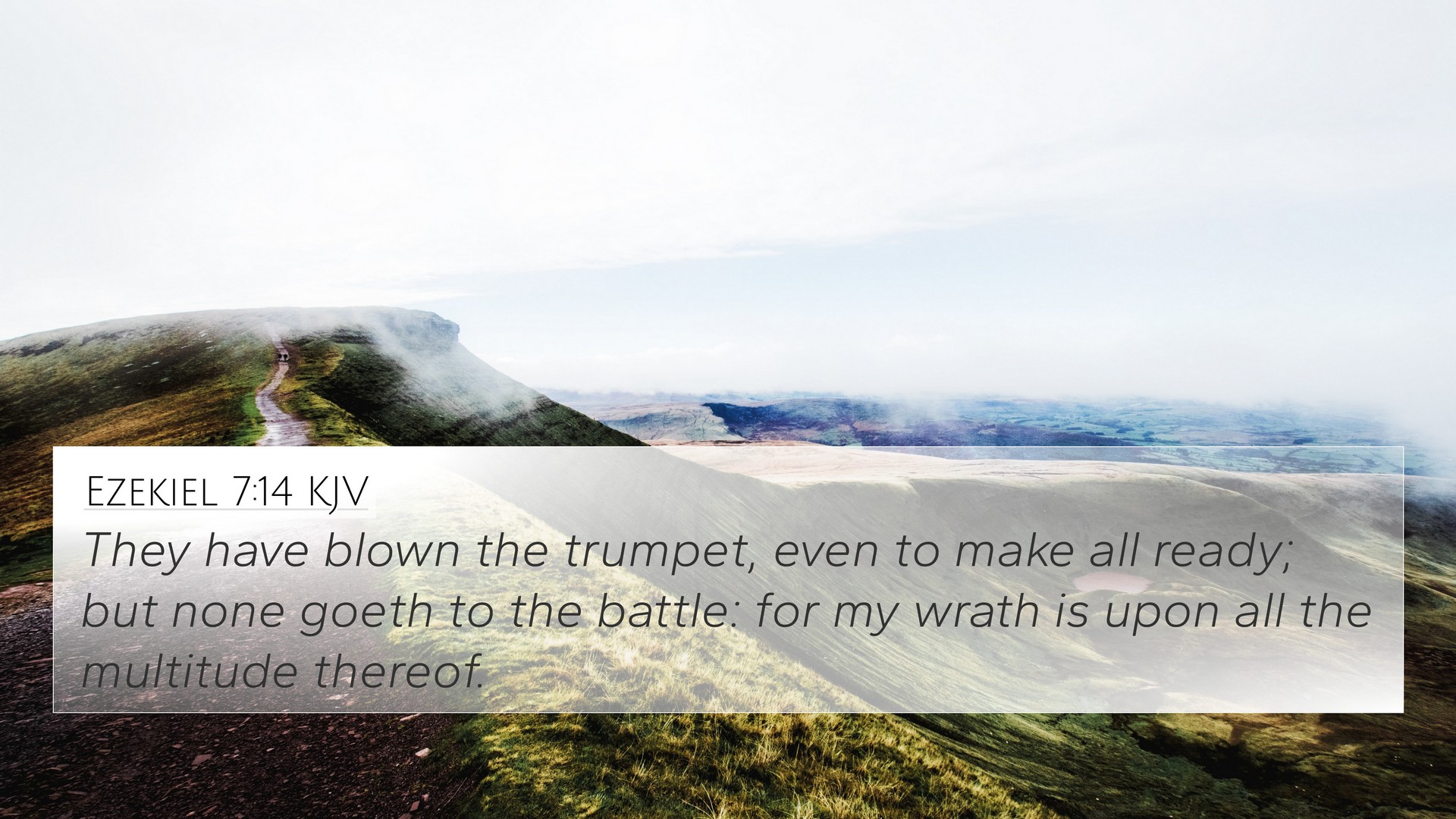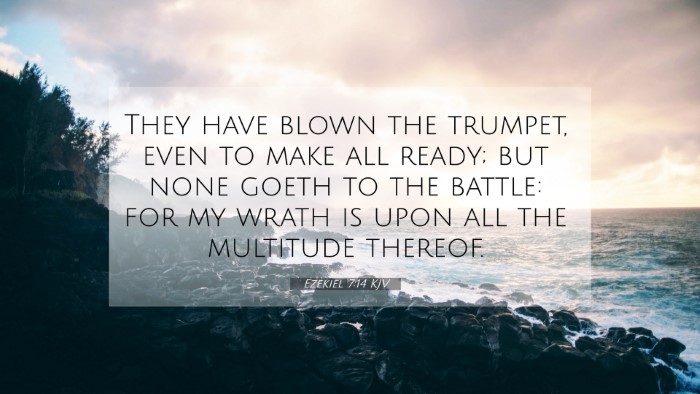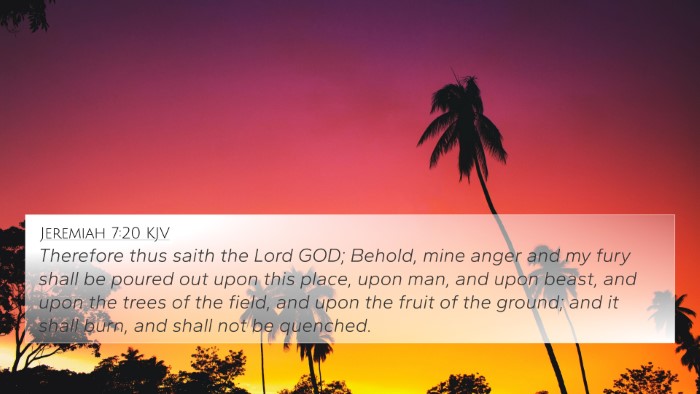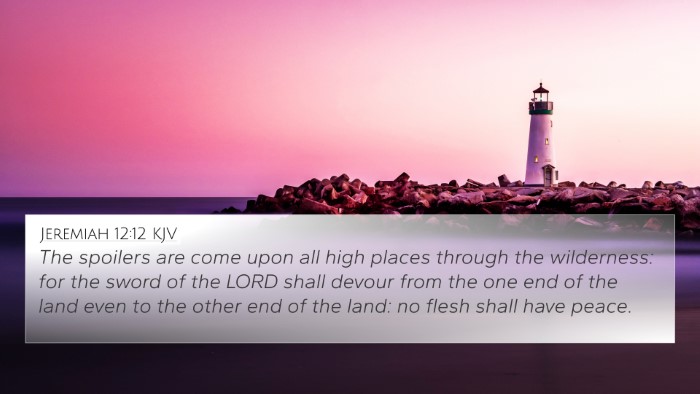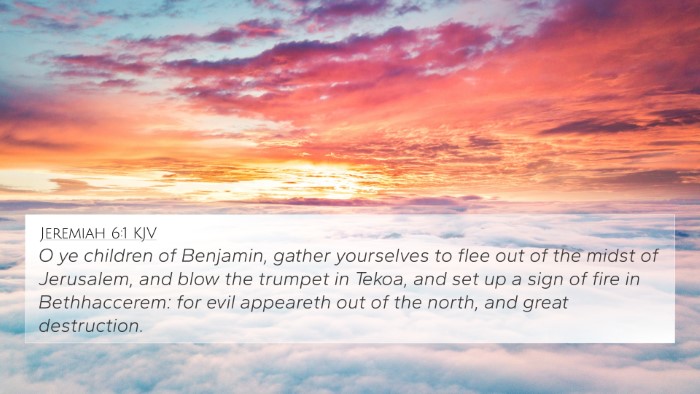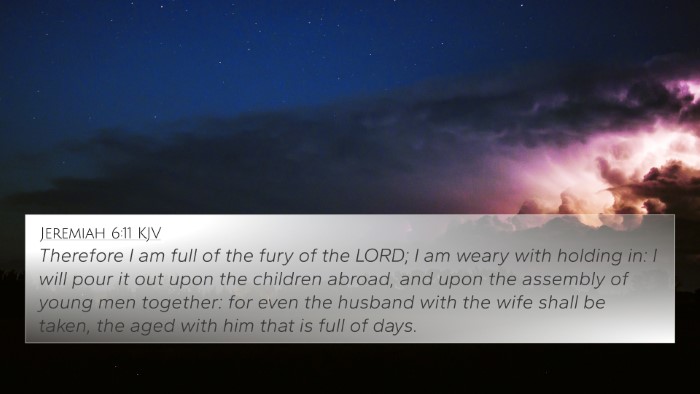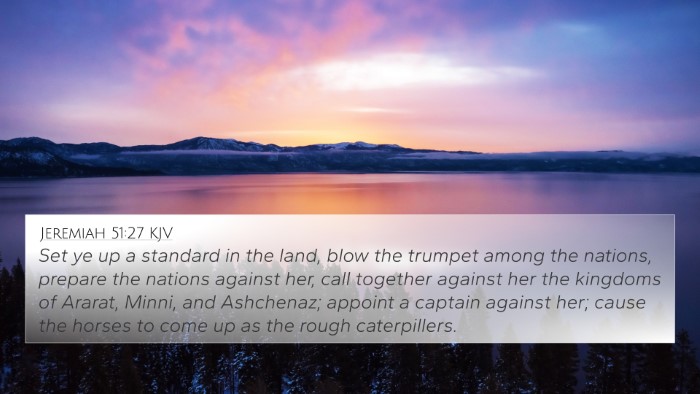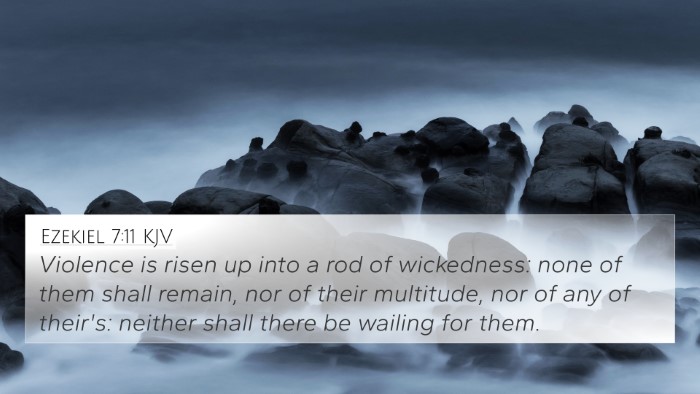Ezekiel 7:14 - Meaning and Interpretation
Ezekiel 7:14 states: "They have blown the trumpet, and made all ready; but none goeth to the battle: for my wrath is upon all the multitude thereof." In this verse, the prophet Ezekiel conveys a profound message of impending judgment and the spiritual lethargy of the people. Here, we will explore the meaning of this verse using insights from various public domain commentaries, and how it connects with other scriptures.
Summary of the Verse
This verse depicts a critical moment when the people are called to prepare for battle, representing the call to repentance and readiness in the face of divine judgment. However, despite the announcement of danger, the people remain idle, illustrating their disobedience and spiritual blindness.
Insights from Commentaries
-
Matthew Henry:
Henry emphasizes the dire condition of Israel, where even the sound of the trumpet, which typically signifies urgency and action, is met with apathy. This reflects the people's unwillingness to respond to God's warnings.
-
Albert Barnes:
Barnes notes the futility of the preparations in the face of God's judgment. The trumpet signifies a call to arms, but the people's lack of action shows their disconnection from God’s will. The inaction signifies their deep-seated issues of faith.
-
Adam Clarke:
Clarke further contextualizes this verse as part of a larger prophetic warning. He highlights the idea that the people are not just unprepared; they are actively disregarding the commands of God and the consequences that await them.
Key Themes and Concepts
The themes present in Ezekiel 7:14 speak to the concepts of divine judgment, spiritual indifference, and the urgency of God's calls. The verse serves as a reminder that God's warnings should be heeded and acted upon.
Cross-References to Ezekiel 7:14
This scripture connects to various other Bible verses that illuminate its message and reinforce its themes. Below are key cross-references:
- Jeremiah 4:19-21: Highlights the alarm of coming judgment and the people’s refusal to listen.
- Isaiah 58:1: Calls for a loud proclamation to the people regarding their sins.
- Ezekiel 33:3: The watchman’s duty to warn the people of danger emphasizes accountability.
- Amos 3:6: Questions whether danger can come without a warning from God.
- Matthew 24:44: Urges vigilance and readiness for what’s to come, connecting to spiritual preparation.
- Revelation 3:3: A call to repentance and vigilance; reminds believers to remain alert.
- Romans 13:11: Encourages waking from spiritual slumber as time is short.
Understanding Through Cross-Referencing
Cross-referencing biblical texts helps highlight interconnections throughout scripture. By studying the themes of judgment, readiness, and repentance found in Ezekiel 7:14 alongside these related verses, readers can grasp the urgency contained within the biblical message:
- Identifying connections between Old and New Testament themes strengthens our understanding of historical context and divine principles.
- Bible concordances and cross-reference guides can enhance our study and comprehension of thematic Bible verse connections.
The Importance of Spiritual Readiness
The central message in Ezekiel 7:14 and its cross-referenced companions serves as a warning about the importance of spiritual readiness. The idleness exhibited by the people in Ezekiel's time resonates with contemporary believers, reminding us all to stay alert and responsive to God’s call.
Conclusion
In conclusion, Ezekiel 7:14 encapsulates a crucial moment of prophetic warning, linking the past with present responsibilities as believers. It illuminates insights from various commentaries and fosters a deeper understanding through thematic and contextual exploration. As we delve into such verses and their connections, we solidify our spiritual foundations and enhance our biblical literacy.
